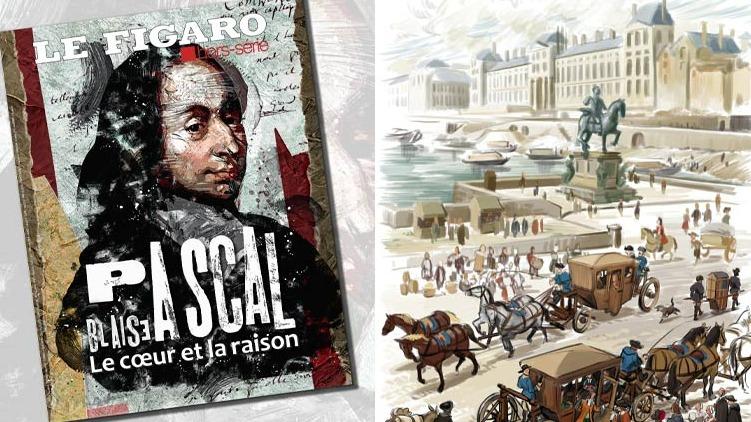This article is taken from the
Figaro Hors-Série Blaise Pascal, the heart and the reason.
“
I want to let you know, sir, your true condition, because it is the thing in the world that people of your kind are most ignorant of.
What is this "
true condition
" that Pascal is about to reveal to the young son of the Duc de Luynes whom he has undertaken to teach through his
Discours sur la condition des grands
?
That of a great lord, who holds his greatness from the social will to distinguish certain states, and who is, in reality, only the "
master of several objects of the concupiscence of men
".
It is because he has the power to grant their desires, to relieve their misery and to reward their efforts that men attach themselves to a great lord and revere him.
If he loses this power, they won't have a single look for him.
“
Your kingdom is small in extent, but you are equal in this to the greatest kings of the earth.
»
Pascal does not condemn this power, he sees its usefulness.
But he warns his protege against the error which would consist in considering the sizes of establishment decided by men for natural sizes, a reflection of qualities of soul and moral superiority.
“
It is not necessary, because you are a duke, that I esteem you, but it is necessary that I salute you.
It is in the name of social coherence and its established order that the weak must respect those who govern them;
as for the moral consideration that he could bring to him, it must be gained by quite another greatness.
Read alsoThe editorial of Le Figaro Hors-série: Blaise Pascal, a man for eternity
Here is the future Duc de Chevreuse politically denial.
If he had believed himself to be of a superior nature to the peasants of the good people, his "
preceptor
" took it upon himself to undeceive him: "
If public thought raises you above the common run of men, let the other lower you and hold you in perfect equality with all men;
because it is your nature.
The people are unaware of this "
secret
", and no doubt it must be preserved so that they accept to be governed.
The grown-ups, on the other hand, must be well informed about it: all their vanity comes from the fact that "
they do not know what they are
" and believe themselves to be of a superior nature.
Concrete application of the paradoxical reasoning he holds on human nature, and therefore social life, Pascal begins by questioning the very principle of monarchy: why entrust the management of a society to the best born?
"
We do not choose to govern a vessel that of the travelers who is of the best house.
And yet, if one wants to make merits prevail at the head of the state, war is certain, because no one will agree on who has the most eminent.
Monarchy is therefore the mode of government best suited to guarantee peace.
It being understood that the monarch must work, above all, with the help of God, to establish the fairest order, that of charity, and this is how Pascal ends his Discourse on the Condition of the Great:
We must despise concupiscence and its kingdom, and aspire to that kingdom of charity where all subjects breathe only charity and desire only the goods of charity.
»
Read alsoEleven days in the life of Pascal: June 1635, bushy geometry
Some time later, the tutor became an entrepreneur and put this maxim into practice by launching, with the Duc de Roannez, the Marquis de Crenan and Arnauld de Pomponne, future minister of Louis XIV, the business of coaches at five floors, the first public transport network created in France, with five coach lines criss-crossing Paris at low prices.
Pascal traced the routes, chose the carriages drawn by four horses, with lackeys and coachmen.
He has thought about the advertising, the organization of the company, the contracts, and is thinking of networks in the provinces and abroad.
Its profits will be destined to help the poor and the sick.
From the first morning, Parisians rush to get into these new coaches, soon victims of their success: many passengers see them pass, full to bursting,
without being able to climb it.
To this disappointment is added another: against the advice of the king, who had encouraged the idea that coaches at five sols be accessible to all, a decree of parliament prohibited people from the lower classes, soldiers, lackeys, pages , and other people in liveries to enter it "
for the greater convenience and freedom of persons of merit
”.
Persons of merit?
What was their merit, Pascal might have asked his young pupil?
Blaise Pascal, heart and reason
, 164 pages, €13.90, available on newsstands and on
Le Figaro Store
.
Cover after the posthumous portrait of Blaise Pascal by François II Quesnel, after 1662 Figaro-Hors-Série










